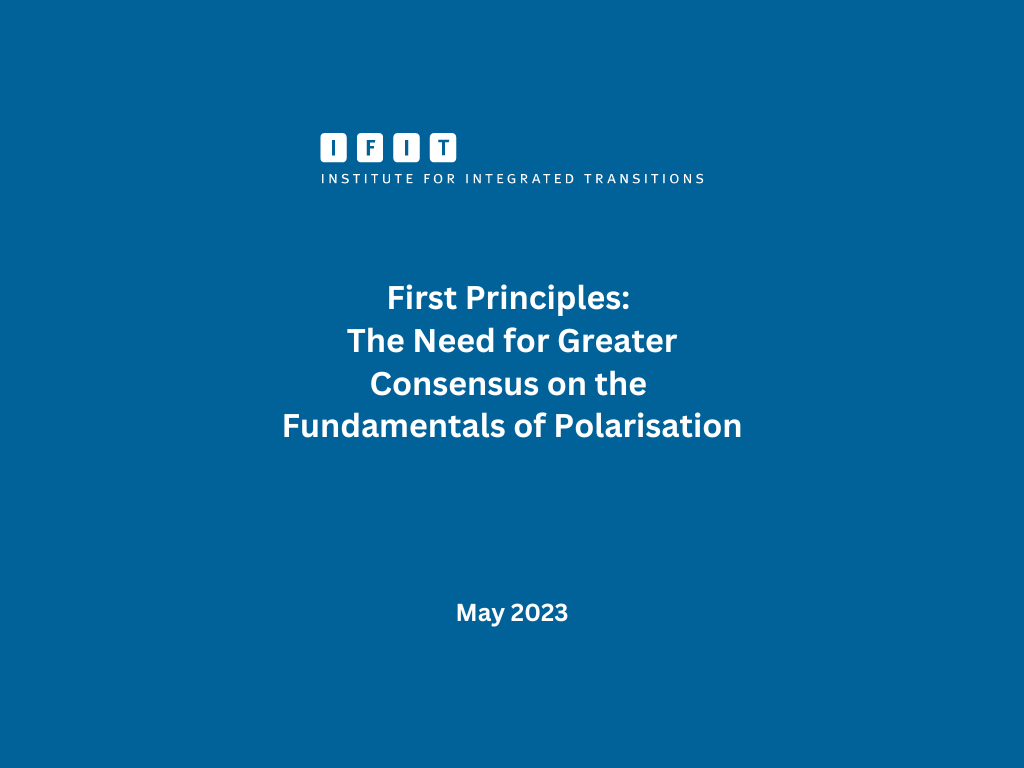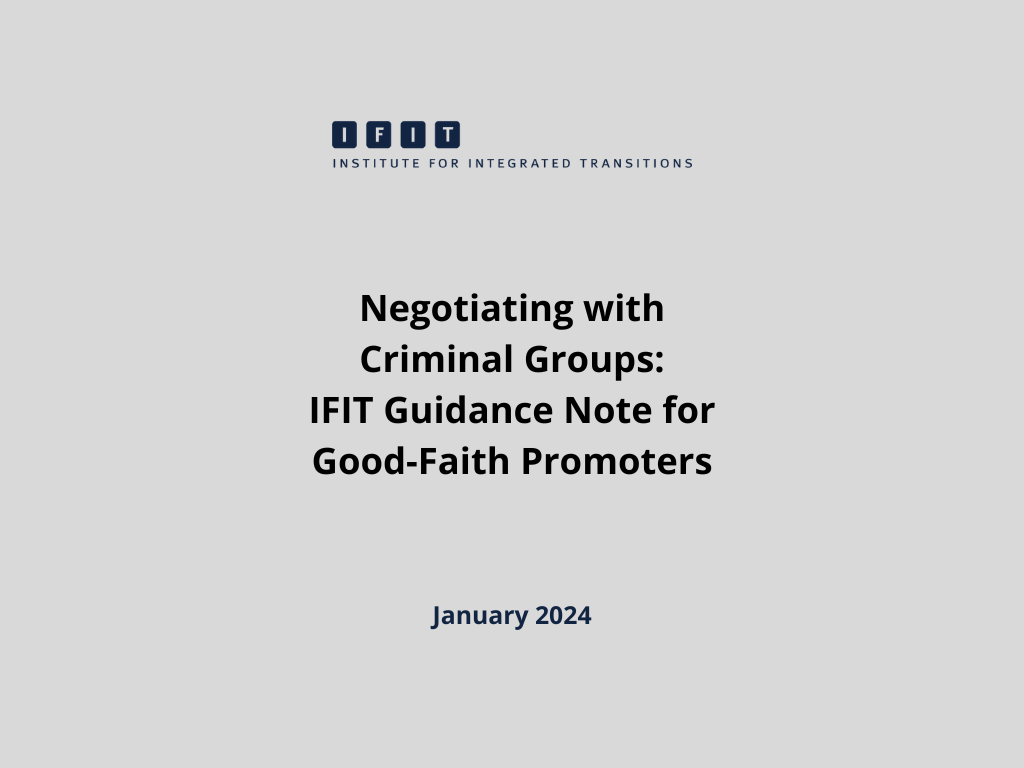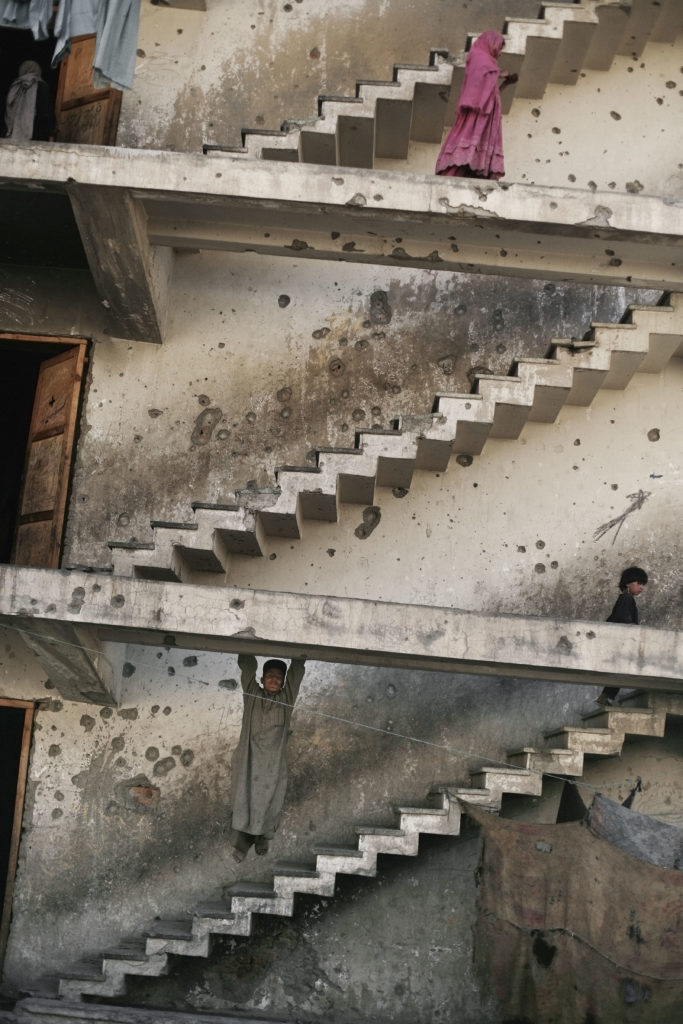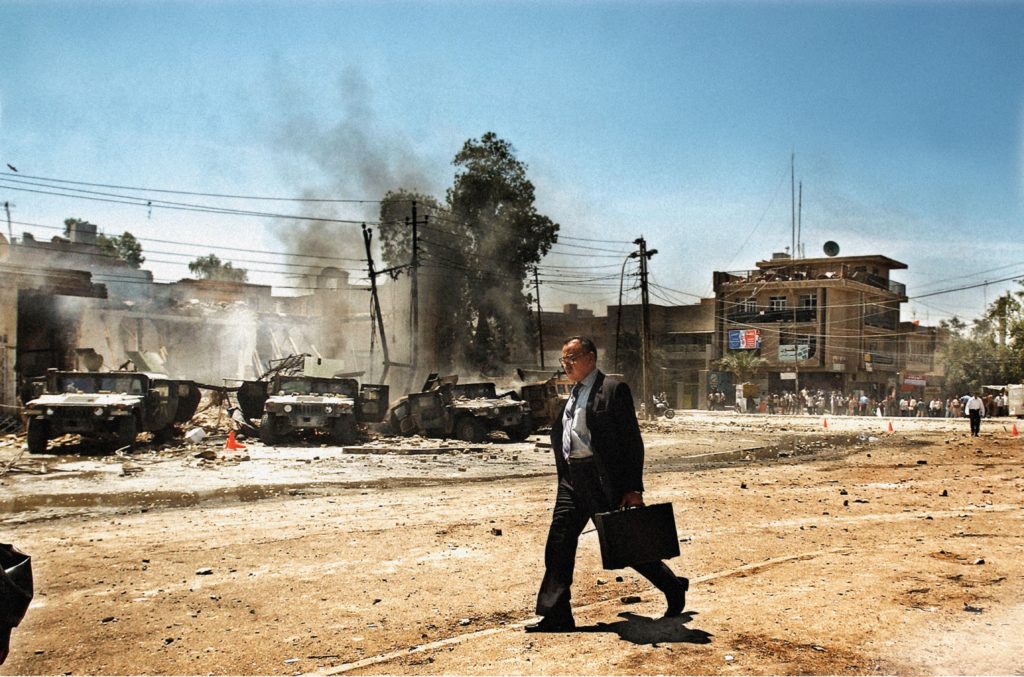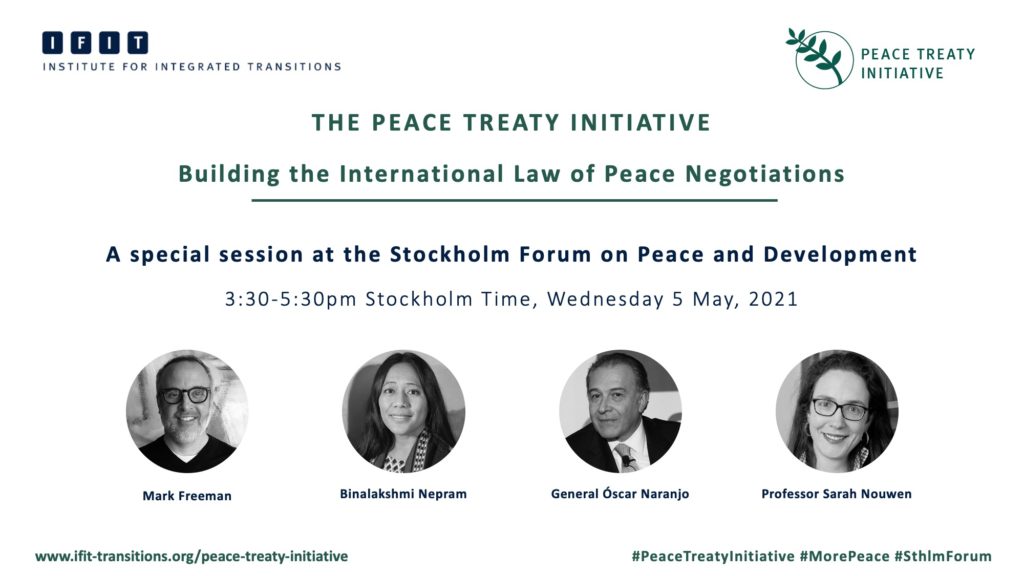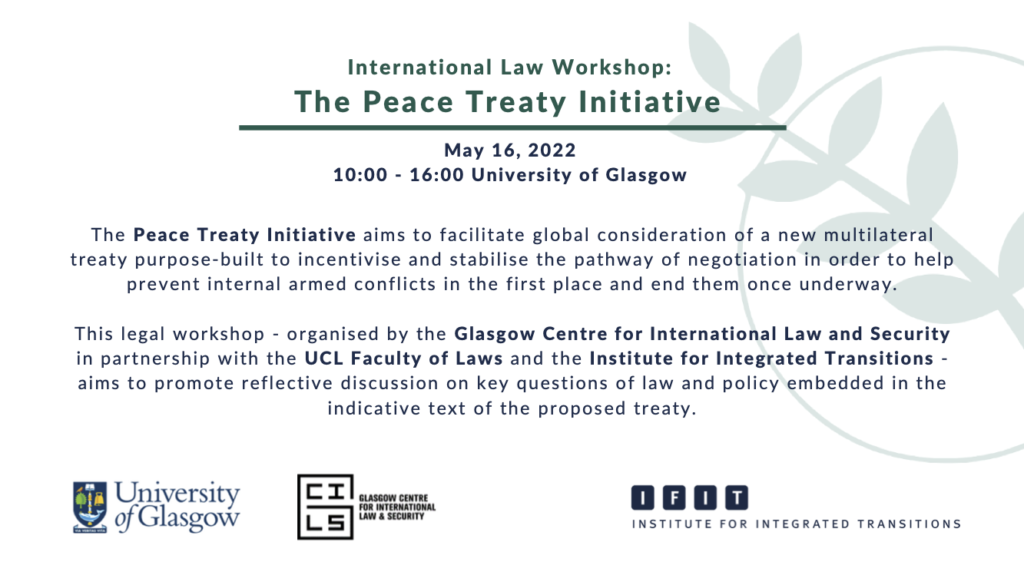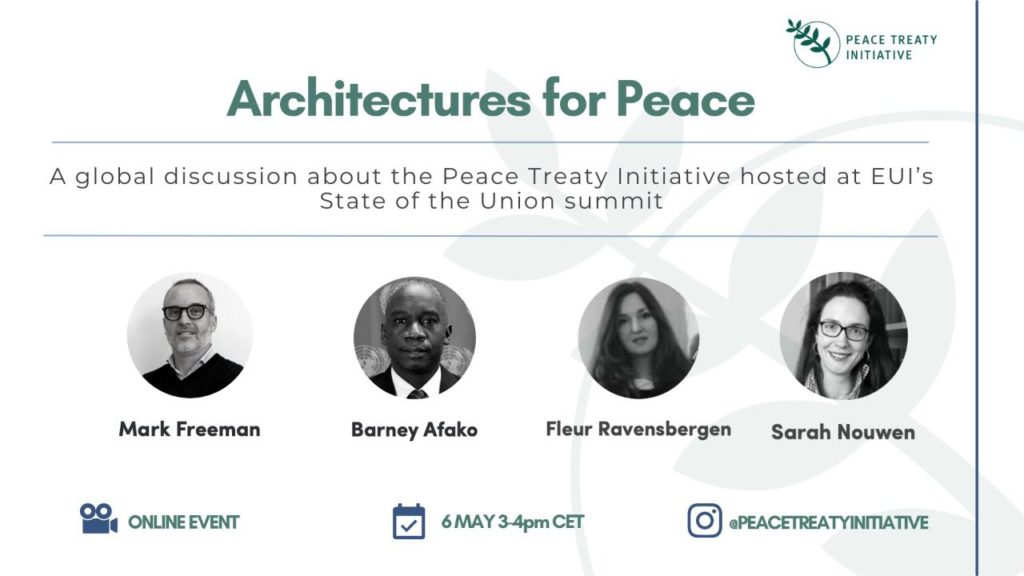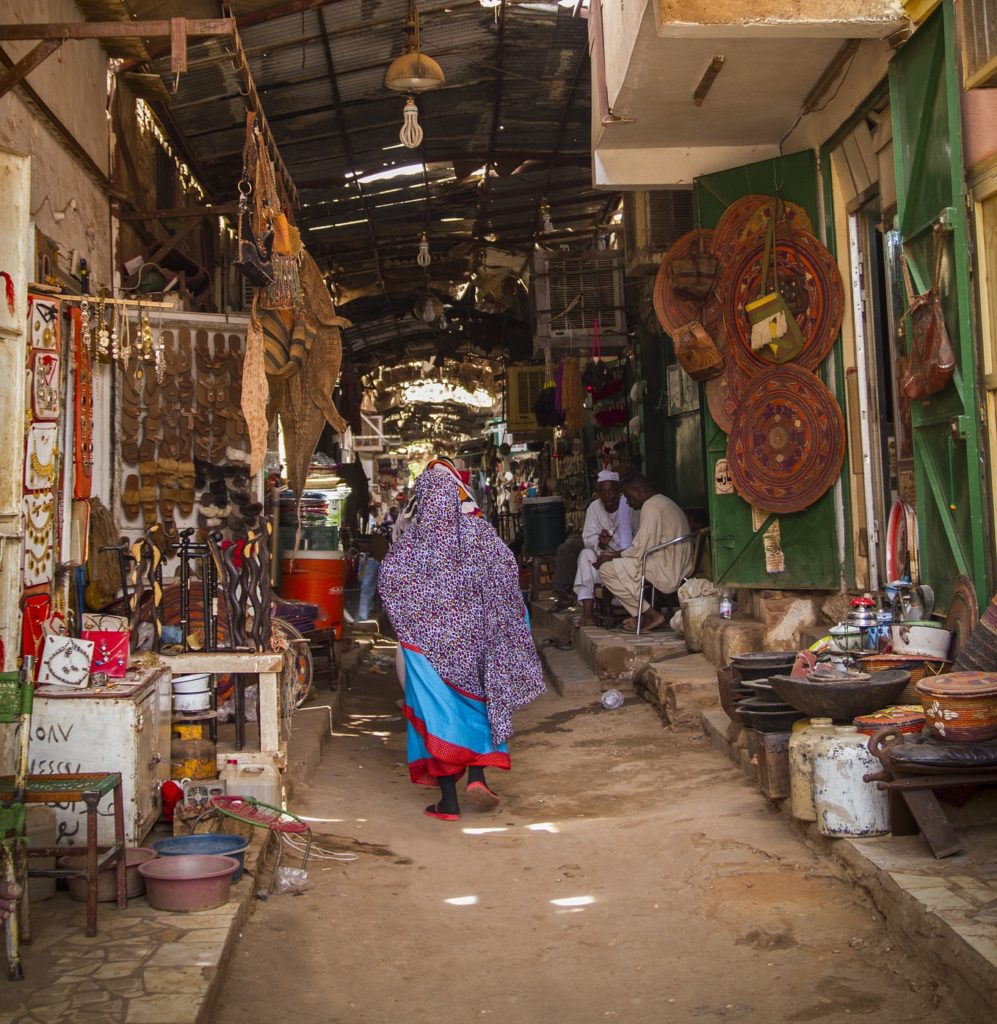Expert Team: Global Initiatives
Javier Ciurlizza is Ford Foundation’s director for the Andean Region, overseeing all grantmaking in the region from Ford’s office in Bogotá, Colombia.
Before joining the foundation in 2016, Javier served as program director for Latin America and the Caribbean at the International Crisis Group. He led efforts to address armed, social, and political conflicts in Bolivia, Colombia, Ecuador, Guatemala, Mexico, Venezuela, and Haiti. Previously, he worked as Americas director for the International Center for Transitional Justice.
Earlier, Javier served as executive secretary of the Truth and Reconciliation Commission for Peru, and as director of the Institute of Democracy and Human Rights at the Universidad Católica. He was appointed the chief of cabinet to the Peruvian Ministry of Justice and served as special adviser for the Ministry of Foreign Affairs. He also guided truth commissions and judiciary processes in Paraguay, Kenya, Indonesia, and Liberia. He started his professional career closely linked to the Peruvian human rights movement, as assistant to the executive secretary of the National Coordinating Committee on Human Rights and later as secretary general of the Andean Commission of Jurists.
Javier holds a master’s degree in international political economy from the University of Warwick in England, and a law degree from the Pontificia Universidad Católica of Peru.
You may also be interested in
Rachel Brown the Founder and Executive Director of Over Zero, an organization that works to build resilience to identity-based violence and other forms of group-targeted harm. She is a recognized expert on confronting hateful and dangerous rhetoric and her work for the past decade has focused on using communication to prevent violent conflict around the world.
Rachel authored Defusing Hate: A Strategic Communication Guide to Counteract Dangerous Speech and was a Fellow at the U.S. Holocaust Memorial Museum’s Simon Skjodt Center for Prevention of Genocide. She also founded and was CEO of Sisi ni Amani-Kenya (SNA-K), an internationally recognized organization that pioneered new strategies to build local capacity for violence prevention and civic engagement in Kenya. Rachel has provided training and strategy support to organizations and programs in the U.S., Europe, Asia, and Africa and consulted for organizations including the World Bank, DAI, and Internews.
Her work has been profiled at conferences, events, and publications globally, including CBS, PopTech, the United States Institute for Peace, United States Airforce Academy, UN Department of Political and Peacebuilding Affairs, Universities across the U.S., and the Stavros Niarchos Foundation International Conference on Philanthropy.
You may also be interested in
Sujit Choudhry practices constitutional law, in Canada and globally. He is an internationally recognized authority on comparative constitutional law. He has been an advisor to constitution building, governance, and rule of law processes for over 20 years, including in Cyprus, Egypt, Ethiopia, Jordan, Libya, Myanmar, Nepal, South Africa, Sri Lanka, Sudan, Tunisia, Ukraine, Yemen and Zimbabwe. He has lectured or spoken in three dozen countries. Choudhry has published over 100 articles, book chapters, policy manuals, reports and working papers. His edited volumes include The Oxford Handbook of the Indian Constitution (Oxford University Press, 2016), Constitution Making (Edward Elgar, 2016), Constitutional Design for Divided Societies (Oxford University Press, 2008), The Migration of Constitutional Ideas (Cambridge University Press, 2005), Territory and Power in Constitutional Transitions (Oxford University Press, 2019) and Security Sector Reform and Constitutional Transitions (Oxford University Press, 2019). Choudhry founded and directs the Center for Constitutional Transitions (CT), which generates and mobilizes knowledge in support of constitution building by assembling and leading international networks of experts to produce evidence-based policy options for decision-makers and agenda-setting research, in partnership with a global network of multilateral organizations, think tanks, and NGOs. CT has worked with over 50 experts from over 25 countries.
Choudhry is also a practicing barrister, and has a broad public law practice on questions of constitutional law, administrative law, public international law and international human rights law, in the Canadian courts, including in judicial reviews, appeals, and arbitrations. He frequently appears as counsel, including in the Supreme Court of Canada in Charkaoui (security certificates), and in Khadr 1 and Khadr 2 (Guantanamo detainees). He is currently counsel in a number of high profile constitutional challenges brought under the Canadian Charter of Rights and Freedoms, including Bakan et al. v. Canada and Cool World et al. v. Twitter, landmark cases globally on the governance of social media platforms. Choudhry was a member of the Governing Toronto Advisory Panel, which proposed major reforms to the structure of municipal government in Toronto, and sat on the Board of Directors of Legal Aid Ontario, one of the largest publicly funded legal assistance programs in the world.
Choudhry was named Practitioner of the Year by the South Asian Bar Association of Toronto in 2011. In 2015, the South Asian Bar Associations of Southern California and Northern California each awarded Choudhry the Trailblazer Award. In 2010, Choudhry received the Trudeau Fellowship. Choudhry holds law degrees from the University of Oxford (as a Rhodes Scholar), the University of Toronto, and Harvard Law School, and served as Law Clerk to Chief Justice Antonio Lamer of the Supreme Court of Canada. For 20 years, Choudhry was a full-time academic at the University of Toronto, New York University, and UC Berkeley (where he served as Dean).
You may also be interested in
For 36 years, General Óscar Naranjo served in the Colombian National Police, where his career was marked by major achievements in combating crime, spearheading institutional modernisation, and fostering a profound sense of trust among citizens. In 2007, he was elevated to the position of Director General of the Police. Throughout his tenure, he garnered numerous accolades, including the Semana Magazine Tribute for his exceptional leadership, and recognition as one of the 500 most influential people in the world by Foreign Policy magazine in its Power Issue.
After his service in the National Police, General Naranjo assumed the helm of the Latin American Institute of Citizenship at the Tecnológico y de Educación Superior de Monterrey (TEC), providing expert guidance to the Mexican federal government until 2014. That same year, he was appointed as Colombia’s Minister of the Presidency for Post-Conflict, Human Rights, and Security, a role he held until November 2015.
In his pivotal role as Plenipotentiary Negotiator for the Government of Colombia in the peace talks with the FARC, he played a crucial role in the construction of the Final Agreement signed in 2016. In March 2017, he was elected by Congress as Vice President of the Republic of Colombia, tasked with overseeing the development and implementation of the Final Agreement; spearheading the fight against organised crime; ensuring citizen security; formulating and implementing a comprehensive policy for the promotion, defence, and protection of human rights; and advising and coordinating the preparation, structuring, and development of a comprehensive public policy for the fight against illicit drugs. He served as Vice President until August 2018.
On May 1, 2023, General Naranjo assumed the presidency of the Social Council of the Universidad Internacional de La Rioja in Colombia, where he plays a key role in promoting the right to higher education and spearheading initiatives aimed at strengthening peaceful coexistence and safeguarding human rights. He also serves as a distinguished member of the IFIT Regional Advisory Council for Latin America and the Caribbean.
You may also be interested in
Sienho Yee studies public international law, especially systemic issues, dispute settlement and v) jurisprudence. He proposed the “international law of co-progressiveness” idea and the principle subsequently employed in ICC Rome Statute, Article 16. Cited and quoted in ICJ and other proceedings, he was the principal presenter on applicable law at the official “ICJ at 70” seminar, and has advised clients in boundary and other matters before the ICJ and elsewhere.
He is currently Professor of International Law, China Foreign Affairs University, Beijing; Editor-in-Chief, Chinese Journal of International Law; Chief Expert, Wuhan University Institute of Boundary and Ocean Studies; Distinguished Professor, National University of Malaysia; AALCO Special Rapporteur on Customary International Law; member of Institut de Droit International and US Supreme Court Bar.
A Columbia Law Review author before receiving his Columbia JD, he was a law clerk to Judge Cowen (US Third Circuit) and Judge Li Haopei (ICTY), Chair of ILA American Branch Committee on International Dispute Settlement, Sub-Reporter on ICJ Matters of ILA UN Reform Study Group, and ILA Baselines Committee member, lawyer at IMF; law faculty member at London (Queen Mary), Colorado (Boulder), Xi’an Jiaotong, and Wuhan University; academic visitor at Harvard, Bellagio-Rockefeller, Oxford (Hamilton Fellow, Christ Church), Humboldt.
You may also be interested in
Ekaterina Stepanova heads Peace and Conflict Studies Unit at Primakov National Research Institute of the World Economy & International Relations (IMEMO), Moscow. Her research focus is on armed conflicts, insurgencies and terrorism, peace processes and peace-building, human security, and the political economy of conflicts.
Her seven monographs include “ISIS and the Phenomenon of Foreign Terrorist Fighters in Syria and Iraq” (2020), “Terrorism in Asymmetrical Conflict: Ideological and Structural Aspects” (Oxford Univ. Press, 2008), and “Civil-Military Relations in Operations Other Than War” (2001). She contributed chapters on Russia to “The Oxford Handbook on the Responsibility to Protect” (2016) and ”The Cambridge History of Terrorism” (2021). Her several edited volumes include “Humanitarian Challenges, Humanitarian Support and Human Protection in Armed Conflicts” (2018), “Addressing Terrorism, Violent Extremism and Radicalization” (2017), and “Terrorism: Patterns of Internationalization” (Sage, 2009).
She edits Russia’s only journal on peace and conflict studies, “Pathways to Peace and Security”, and serves on editorial boards of “Global Governance” and “Global Responsibility to Protect”. She also serves as an expert at the Global Peace Index methodology panel and is the IMEMO contact point for the UN Counterterrorism Committee Executive Directorate’s Global Research Network.
She is a graduate of, and holds a PhD from, Moscow State University and holds a Dr. Sc. (Dr. Habil.) degree in Political Science from IMEMO. In 2007–2009, she was on leave from IMEMO to lead the Armed conflicts and conflict management program at Stockholm International Peace Research Institute (SIPRI).
You may also be interested in
Véronique Dudouet is a Senior Research Advisor at Berghof Foundation in Berlin (Germany). Since 2005, she has managed various collaborative research projects on non-state armed groups and peace processes, negotiations and third-party intervention in asymmetric conflicts, inclusive political/security transitions, post-war governance, protest movements and nonviolent-led transitions of power. She conducts regular policy advice, peer-to-peer advice and training seminars for/with conflict and peacebuilding stakeholders. She also carries out consultancy research for various civil society organisations and international agencies (e.g. UNDP, OECD-DAC, European Parliament/External Action Service, GIZ, NOREF) and serves as Academic Advisor of the International Center on Nonviolent Conflict in Washington. She is also member of the French Research Institute for Nonviolent Conflict Resolution (IRCN). From April to October 2019, she was a Jennings Randolph Senior Fellow at the U.S. Institute of Peace in Washington DC. She has published two edited books and authored numerous publications in the fields of conflict transformation and nonviolent resistance. She holds an MA and a PhD in Conflict Resolution from the University of Bradford, UK, and a BA in political science and MPhil in International Relations and Security from the Institut d’Etudes Politiques, Toulouse, France.
You may also be interested in
Tawakkol Karman was awarded the 2011 Nobel Peace Prize in recognition of her nonviolent struggle for the safety of women and their right to full participation peacebuilding process in Yemen. Karman was the first Yemeni, the first Arab woman, and the second Muslim woman to receive this honor, and at 32, was the youngest Nobel Prize Laureates to date. Karman is a mother of three as well as a human rights activist, journalist, politician, and the president of the organization Women Journalists Without Chains.. She is a General Coordinator of the Revolutionary Youth Council in Yemen and a member of the advisory board for Transparency International as well as several other international human rights NGOs. Bold and outspoken, Karman has been imprisoned on a number of occasions for her pro-democracy, pro-human rights protests. Amongst Yemen’s Youth movement, she is known as “mother of the revolution”, “the iron woman”, and the Lady of the Arab Spring. She received an undergraduate degree in Commerce from the University of Science and Technology in Sana’a and completed a graduate degree in Political Science at the University of Sana’a.
You may also be interested in
Dr. Speciosa Wandira-Kazibwe is an accomplished leader whose negotiation skills have led to strategic consensus-driven decisions. She is a Medical Surgeon with a Doctor of Science Degree in Global Health and Population from the Harvard School of Public Health.
Dr. Wandira has served as Executive Vice President of the Republic of Uganda; held various Cabinet portfolios; was Member of Uganda’s Parliament for 17 years; and a Member of the Constituent Assembly that drafted Uganda’s 1995 Constitution. She has served on various local, regional and international Boards and Commissions and led an African Union National Elections Monitoring Mission to Liberia in 2011 and to Mauritius in 2019. As the first President of the African Women’s Committee on Peace and Development of the African Union (then OAU), she mobilized and advocated for the active involvement of women in Africa’s leadership and peace and development initiatives.
Currently Dr. Wandira is serving as: a Member of the African Union Panel of the Wise; Co-Chair of FEMWISE Africa; Special Advisor to the President of the Republic of Uganda on Population and Health; Founder Board member of the Coalition for Dialogue on Africa (CODA); and a champion for an HIV-free generation in Africa. Dr. Wandira believes in the use of evidence for policy, stewardship and effective community / stakeholder engagement as a necessary avenue for the socio-economic transformation of Africa.
You may also be interested in
Soliman M. Santos, Jr. is presently a Judge of the Regional Trial Court (RTC) of Naga City, Camarines Sur, Bicol Region, Philippines. As a Judge since 2010, he has excelled in alternative dispute resolution or mediating the compromise settlement of court cases. He is a long-time human rights and IHL lawyer; legislative consultant and legal scholar; peace advocate, researcher and writer. He is a member of the new Editorial Board of the International Review of the Red Cross.
Santos, Jr. was the pioneering peace advocate-observer in the successful peace negotiations between the Government of the Republic of the Philippines (GRP) and the Moro National Liberation Front (MNLF) of 1992-96, representing the independent peace advocates at the Third Jakarta Talks in 1995. As then Coordinator of the Philippine Campaign to Ban Landmines (PCBL), he was the NGO representative in the Philippine government delegation to the Ottawa Conference (Oct. 3-5, 1996) which launched the Ottawa Process resulting in the landmark 1997 Ottawa Treaty banning anti-personnel mines. He was among the pioneers in 1997 of the global work of engaging non-state actors (rebel groups) in a landmine ban and in 2006 of the global South work of constructively engaging non-state armed groups beyond the landmines issue. Also as then PCBL Coordinator who participated with the Philippine delegation at the Dublin Diplomatic Conference on Cluster Munitions in 2008, he made four substantive contributions to that year’s Convention on Cluster Munitions. His last act before stepping down as PCBL Coordinator was being its conforme signatory to the “Guidelines for the Implementation of the Philippine Campaign to Ban Landmines-Fondation Suisse de Deminage (PCBL-FSD) Project Pursuant to the Joint Statement of the GRP-MILF [Moro Islamic Liberation Front] Peace Panels dated 15 November 2007” on 5 May 2010 regarding the clearing of mines/unexploded ordnance in conflict-affected areas in Mindanao, Southern Philippines. He thus sets a Filipino example of civil society pioneering, participation and contributions in intra-state peace negotiations, in non-state armed group engagement and in international treaty-making.
You may also be interested in


